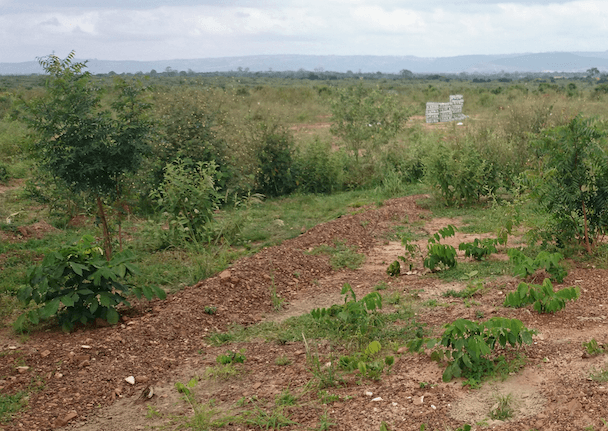Stop agro-imperialism – Prof Dakora
 Professor Felix Dapare Dakora, President of the African Academy of Sciences (AAS), has called for the end of what he described as “Agro-Imperialism,” where massive chunk of Africa’s arable lands are sold for pittance to foreign grabbers, if the continent was to feed its projected 2.5 billion population by 2050.
Professor Felix Dapare Dakora, President of the African Academy of Sciences (AAS), has called for the end of what he described as “Agro-Imperialism,” where massive chunk of Africa’s arable lands are sold for pittance to foreign grabbers, if the continent was to feed its projected 2.5 billion population by 2050.
He appealed to the African Union Commission to curtail this emerging ‘cruelty’ by promulgating a continental legal framework to restrain the outright buyouts for short-to medium term leases to forestall the unwarranted land resource grabbing phenomenon.
“Africa occupies 64 percent of global arable land and yet the hungriest,” he said that loss of such a vital resource of land could jeopardise the food security aspirations of the continent.
Prof Dakora, also the African Union Kwame Nkrumah Award for Scientific Winner 2016, said this in an interview with the Ghana News Agency on the sidelines of Science Forum South Africa (SFAS 2017), which ended recently in Pretoria, South Africa.
He said lands from Ethiopia, Angola, Mozambique, Kenya and Zimbabwe were already suffering from the land grab phenomenon ostensibly from investors from China, Saudi Arabia and India.
“It is time to match Africa’s land with its population and activate scientific approaches to derive the optimum derivatives towards feeding the continental many mouths.”
He proposed a ‘Young Farmers Brigade’ policy practiced during President Kwame Nkrumah’s regime to attract the youth into agriculture as projections show Africa would possess the most youthful global population by 2050.
Joan Cuka Kagwanja, Coordinator of the African Land Policy Centre (ALPC) at the United Nations Economic Commission for Africa (UNECA), said large scale land acquisition by foreign investors have raised questions regarding the world’s future development trajectory.
She said large scale land deals, which take the form of land grabbing have negative implications on the rights of the indigenous people especially women, who play critical role in agricultural production in developing countries.
The Coordinator said a comprehensive ex-ante assessment on the economic, financial, socio-cultural, and environmental benefits and implications of land investments should be a priority in deciding whether to promote large scale investments or not.
Madam Kagwanja said the capacity for negotiations of these land investments is critical to ensure the rights of communities while social mobilisation, responsible governance is underpinned by comprehensive responsive policies, legal frameworks and institution of land administration.
She said the 2014 African Union decision by its Specialised Technical Committee (STC) on Agriculture, Rural Development, Water and Environment have endorsed the use of the ‘Guiding Principles’ on large scale land-based investments developed by ALPC, which specifies how such deals should be undertaken.
Source: GNA
